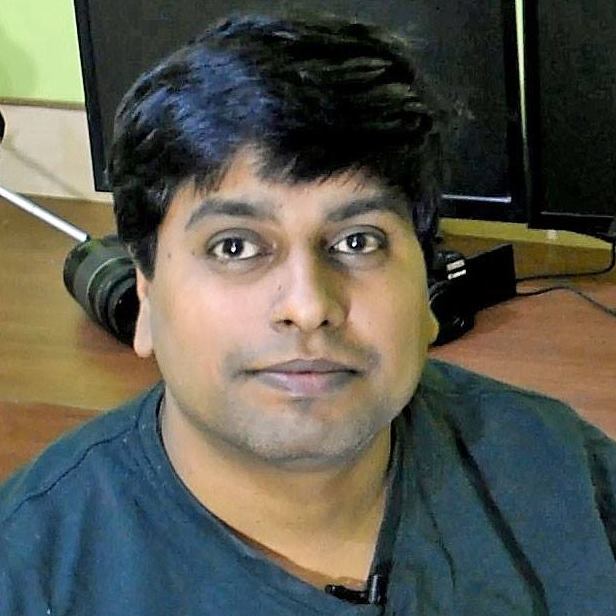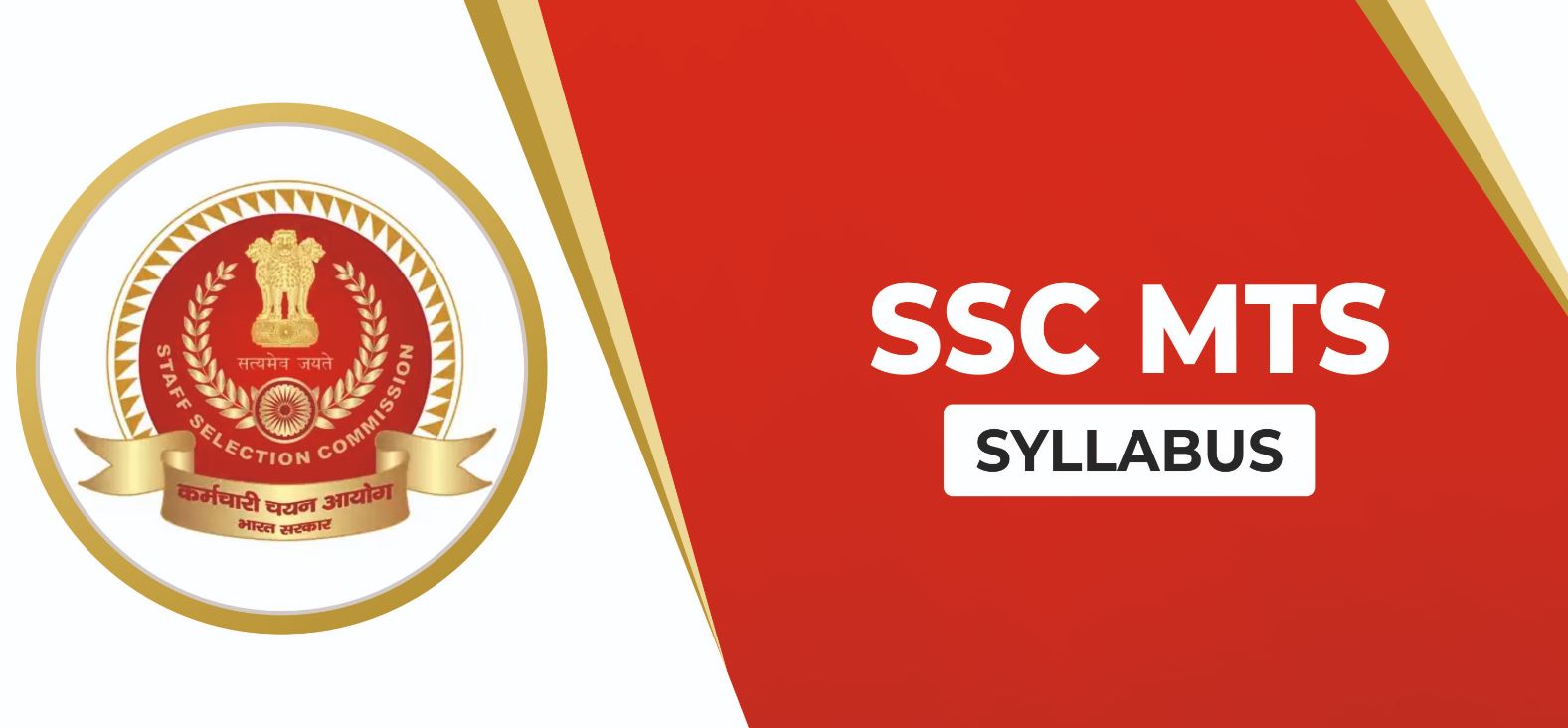Are you gearing up for the Staff Selection Commission (SSC) Multi-Tasking Staff (MTS) exam in 2026? The SSC MTS exam is a popular entry-level recruitment test for various non-technical Group ‘C’ posts in government departments and offices across India. It offers opportunities for roles like peon, daftary, jamadar, junior gestetner operator, chowkidar, safaiwala, mali, and more. With thousands of vacancies expected, understanding the syllabus is crucial for effective preparation.
The SSC MTS 2026 notification is anticipated to be released around June 2026, based on the commission’s annual calendar patterns. While the official syllabus for 2026 hasn’t been announced yet as of August 2025, it is expected to remain largely unchanged from the 2025 version, as the exam structure has been consistent in recent years. This guide breaks down the expected syllabus, exam pattern, and key preparation tips to help you stay ahead.
SSC MTS Exam Pattern 2026
Before diving into the syllabus, let’s look at the exam structure. The SSC MTS exam consists of two main stages:
- Computer-Based Examination (CBE) – Paper 1: This is an objective-type online test divided into two sessions. There’s no negative marking in Session 1, but Session 2 has a penalty of 1 mark for each wrong answer.
- Session 1: 40 questions, 120 marks, 45 minutes.
- Session 2: 50 questions, 150 marks, 45 minutes.
- Total: 90 minutes (120 minutes for PwD candidates).
- Physical Efficiency Test (PET)/Physical Standard Test (PST): Applicable only for Havaldar posts (CBIC and CBN). MTS posts do not require this.
Qualifying Paper 1 is mandatory, and final selection is based on performance in Session 2 (Session 1 is qualifying only).
Detailed SSC MTS Syllabus 2026
The syllabus for Paper 1 covers four key subjects. Below is a section-wise breakdown with important topics. Focus on building conceptual clarity and practicing previous years’ questions.
1. Numerical and Mathematical Ability (Session 1: 20 Questions, 60 Marks)
This section tests basic mathematical skills up to Class 10 level. Key topics include:
- Integers and Whole Numbers
- LCM and HCF
- Decimals and Fractions
- Relationship between Numbers
- Fundamental Arithmetic Operations and BODMAS
- Percentage
- Ratio and Proportions
- Work and Time
- Direct and Inverse Proportions
- Averages
- Simple Interest
- Profit and Loss
- Discount
- Area and Perimeter of Basic Geometric Figures
- Distance and Time
- Lines and Angles
- Interpretation of Simple Graphs and Data
- Square and Square Roots
Preparation Tip: Practice speed calculations and focus on shortcuts for time-bound problems.
2. Reasoning Ability and Problem Solving (Session 1: 20 Questions, 60 Marks)
This non-verbal reasoning section evaluates logical thinking and analytical skills. Important topics are:
- Alpha-Numeric Series
- Coding and Decoding
- Analogy
- Following Directions
- Similarities and Differences
- Jumbling
- Problem Solving and Analysis
- Non-Verbal Reasoning Based on Diagrams
- Age Calculations
- Calendar and Clock
Preparation Tip: Solve puzzles and series daily to improve pattern recognition.
3. General Awareness (Session 2: 25 Questions, 75 Marks)
This section covers current affairs and static GK. Topics include:
- History (Ancient, Medieval, Modern India, and World)
- Geography (Physical, Economic, and Social)
- Art and Culture
- Civics and Polity (Indian Constitution, Governance)
- Economics (Basic Concepts, Budget, Schemes)
- General Science (Physics, Chemistry, Biology up to Class 10)
- Environmental Studies
- Current Events (National and International News, Sports, Awards)
- Scientific Research and Inventions
Preparation Tip: Read newspapers, follow monthly current affairs magazines, and revise static GK from standard books.
4. English Language and Comprehension (Session 2: 25 Questions, 75 Marks)
This tests basic English proficiency. Key areas:
- Basics of English Language
- Vocabulary (Synonyms, Antonyms, One-Word Substitutions)
- Grammar (Tenses, Articles, Prepositions, Conjunctions)
- Sentence Structure
- Reading Comprehension
- Fill in the Blanks
- Error Spotting
- Phrase or Idiom Meaning
- Spellings
Preparation Tip: Improve vocabulary through daily reading and practice comprehension passages.
For Havaldar posts, additional PET/PST requirements include walking/running tests and height/chest measurements, but these are not part of the syllabus for MTS.
Preparation Strategy for SSC MTS 2026
- Understand the Pattern: Attempt mock tests to get familiar with the online format.
- Time Management: Allocate study time equally across sections, with extra focus on weak areas.
- Resources: Use NCERT books for basics, previous year papers, and online quizzes.
- Stay Updated: Keep an eye on the official SSC website for any syllabus revisions in the 2026 notification.
- Health and Revision: Maintain a balanced routine with regular revisions and breaks.
With consistent effort, cracking SSC MTS 2026 is achievable. Start early, stay disciplined, and aim for accuracy over speed.
FAQ: Frequently Asked Questions on SSC MTS Syllabus 2026
Q1: What is the SSC MTS exam? A: SSC MTS (Multi-Tasking Staff) is a national-level exam conducted by the Staff Selection Commission for recruiting candidates to various Group ‘C’ non-gazetted, non-ministerial posts in central government departments.
Q2: Is the syllabus for SSC MTS 2026 different from 2025? A: As of now, no changes have been announced. The 2026 syllabus is expected to be the same as 2025, focusing on the four core sections. Always check the official notification for confirmation.
Q3: How many sessions are there in SSC MTS Paper 1? A: There are two sessions. Session 1 covers Numerical Ability and Reasoning (qualifying), while Session 2 includes General Awareness and English (scoring).
Q4: Is there negative marking in SSC MTS 2026? A: Yes, but only in Session 2 (1 mark deduction per wrong answer). Session 1 has no negative marking.
Q5: What is the level of difficulty for the SSC MTS exam? A: The questions are based on Class 10 level, making it accessible for most candidates. However, competition is high, so thorough preparation is essential.
Q6: Are there any physical tests for MTS posts? A: No, PET/PST is only for Havaldar posts. MTS selection is based solely on the CBE performance.
Q7: How can I download the official SSC MTS 2026 syllabus? A: Once the notification is released, the detailed syllabus will be available in the official PDF on the SSC website.
Q8: What are the best books for SSC MTS preparation? A: For Reasoning: RS Aggarwal; Quantitative Aptitude: Kiran Publications; English: Objective General English by SP Bakshi; General Awareness: Lucent’s GK.
Q9: Can I apply for both MTS and Havaldar posts? A: Yes, candidates can opt for both during the application process, but Havaldar requires meeting PET/PST criteria.
Q10: When will the SSC MTS 2026 exam be held? A: Based on patterns, it’s likely in September-October 2026, but exact dates will be in the notification.
If you have more questions, feel free to reach out in the comments. Good luck with your preparation!

Hi, I’m Varun Pathak, the founder of TheSarkariNaukri.com—a dedicated platform for the latest updates on government jobs (Sarkari Naukri) in India. With years of experience curating reliable information on job vacancies, admit cards, exam results, and preparation strategies, I help thousands of aspirants navigate the competitive world of public sector opportunities. Passionate about job security, career growth, and empowering freshers for roles like IAS, IPS, and PSU positions, I update the site regularly with actionable insights for 2025 and beyond. Let’s connect to turn your career dreams into reality!
